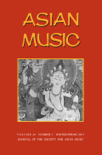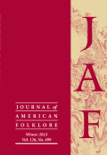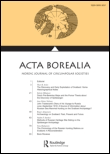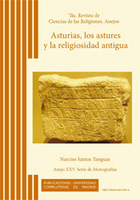
Folklore-Electronic Journal of Folklore
metrics 2024
Pioneering Insights into the World of Folklore
Introduction
Folklore-Electronic Journal of Folklore is a pioneering academic platform dedicated to the expansive field of folklore studies, published by the esteemed Estonian Literary Museum. With an ISSN of 1406-0957 and an E-ISSN of 1406-0949, this journal has established itself as a notable contributor to the scholarship on cultural expressions and traditions, particularly in the context of Estonia and beyond. Operating under an open access model, the journal aims to disseminate high-quality research that illuminates the rich tapestry of human folklore, mythology, and cultural practices across various societies. Recognized for its impact, it has been categorized in the Q3 quartile for Anthropology and Q2 for Cultural Studies in 2023, reflecting its relevance and rigorous academic standards. By ranking #436 out of 1304 in Cultural Studies and #267 out of 502 in Anthropology according to Scopus, the journal serves as a vital resource for researchers, professionals, and students interested in the interplay between folklore and contemporary societal issues. Overall, the Folklore-Electronic Journal of Folklore not only promotes scholarly exchange but also invites contributions that push the boundaries of traditional folklore research.
Metrics 2024
 0.16
0.16 0.20
0.20 0.20
0.20 11
11Metrics History
Rank 2024
Scopus
JCI (Web Of Science)
Quartile History
Similar Journals

ASIAN MUSIC
Connecting Cultures Through the Language of Music.ASIAN MUSIC is a distinguished academic journal published by University of Texas Press, focusing on the rich and diverse musical traditions of Asia. With an ISSN of 0044-9202 and an E-ISSN of 1553-5630, this journal serves as a key platform for interdisciplinary research that encompasses musicology, ethnomusicology, and cultural studies related to Asian music practices. While ASIAN MUSIC is not an open-access journal, it provides valuable insights and scholarly articles that contribute significantly to the understanding of music’s role within Asian cultures. The journal originally covered works from 2002 to 2010 and has a reputation for fostering discussions that celebrate the intricacies of sound, performance, and society. Targeting researchers, professionals, and students alike, ASIAN MUSIC stands as a crucial resource for those engaged in the study of music in its multifaceted context.

Rusin
Navigating Complex Histories and Evolving LanguagesRusin is a distinguished academic journal published by ASSOC RUS in Moldova, playing a pivotal role in the multidisciplinary landscape of the humanities and social sciences. With an ISSN of 1857-2685 and an E-ISSN of 2345-1149, this journal has been circulating since 2011, amassing a significant reputation by 2023 as evidenced by its prestigious quartile rankings: Q2 in Anthropology, Q1 in History, Q2 in Linguistics and Language, Q1 in Literature and Literary Theory, and Q3 in Sociology and Political Science. The journal boasts remarkable Scopus rankings, including an impressive rank of #145 in Literature and Literary Theory, placing it in the 86th percentile among its peers. Although currently not open access, Rusin serves as an essential platform for researchers, professionals, and students, aiming to further the understanding of complex cultural and historical narratives, language evolution, and sociopolitical dynamics. As an informative resource, it fosters critical dialogue and interdisciplinary collaboration, solidifying its importance in the publishing realm within the humanities and social sciences.

Ezhegodnik Finno-Ugorskikh Issledovanii-Yearbook of Finno-Ugric Studies
Fostering Interdisciplinary Insights into Finno-Ugric PeoplesEzhegodnik Finno-Ugorskikh Issledovanii-Yearbook of Finno-Ugric Studies is a distinguished academic journal published by Udmurt State University, focusing on the vibrant field of Finno-Ugric studies. With its ISSN 2224-9443 and E-ISSN 2311-0333, this journal serves as a vital platform for researchers, scholars, and students to contribute and access high-quality, peer-reviewed work that explores the linguistic, cultural, and historical dimensions of Finno-Ugric peoples. This journal is particularly essential for those interested in interdisciplinary studies, as it often intersects with anthropology, linguistics, and cultural studies. Although currently not available as open access, it provides valuable insights for advancing academic discourse in this underrepresented area of study. The Yearbook is located in Izhevsk, Russia, and is committed to enriching the academic community, fostering collaboration, and promoting understanding of the Finno-Ugric heritage.

FABULA
Advancing Literary Discourse Since 1958FABULA is a distinguished academic journal published by WALTER DE GRUYTER GMBH, focused on the fields of Cultural Studies and Literature and Literary Theory. Since its inception in 1958, FABULA has contributed significantly to the discourse surrounding narrative theory, literary analysis, and cultural criticism, positioning itself as a vital platform for innovative research. With a Q2 ranking in Literature and Literary Theory and a Q3 ranking in Cultural Studies for 2023, the journal demonstrates its commitment to high-quality scholarship while fostering interdisciplinary dialogue among researchers and professionals. Although it currently does not offer Open Access options, its rigorous selection process ensures that published works meet the highest academic standards. Located in Berlin, Germany, FABULA remains a crucial resource for scholars seeking to deepen their understanding of the complexities inherent in narrative forms and their cultural implications, supporting ongoing research endeavors from 1964 through 2024.

JOURNAL OF AMERICAN FOLKLORE
Illuminating the Rich Tapestry of FolkloreJOURNAL OF AMERICAN FOLKLORE, published by the American Folklore Society, is a distinguished journal dedicated to the exploration and analysis of folklore, cultural traditions, and the diverse narratives that shape American identity. With a rich history dating back to its inception, the journal has positioned itself as a leading platform in the field, boasting a 2023 ranking of Q1 in Cultural Studies and Q2 in Arts and Humanities (miscellaneous). The journal's impact within the academic community is underscored by its high Scopus rankings, placing it in the 83rd and 65th percentiles in Cultural Studies and Arts and Humanities, respectively. Readers can access a wealth of insightful articles that contribute to ongoing discussions in folklore studies, cultural anthropology, and related disciplines. As the study of folklore becomes increasingly relevant in understanding contemporary societal dynamics, JOURNAL OF AMERICAN FOLKLORE serves as an essential resource for researchers, professionals, and students alike, enriching discourse and fostering a deeper appreciation for the cultural experiences that define America.

Acta Borealia
Connecting Cultures Through Rigorous ResearchActa Borealia is a prestigious academic journal published by ROUTLEDGE JOURNALS, TAYLOR & FRANCIS LTD, based in the United Kingdom. Since its inception in 1984, the journal has established itself as a vital platform for scholarly discourse in the fields of Anthropology, Cultural Studies, History, Sociology, and Political Science. With a commendable impact factor and placement in Q1 and Q2 quartiles across various categories, it demonstrates a strong commitment to high-quality research and innovative contributions. The journal is well-ranked in Scopus metrics, highlighting its influence and reach within the arts and humanities as well as social sciences. Acta Borealia publishes original research articles, reviews, and critical essays, making it an essential resource for researchers, professionals, and students alike seeking to enhance their understanding of northern studies and related fields. While securing access may require institutional login or subscription, the journal's rich content continues to foster interdisciplinary discussions that are critical for navigating complex social issues.

SCHWEIZERISCHES ARCHIV FUR VOLKSKUNDE
Enriching Academic Discourse on Folk CultureSCHWEIZERISCHES ARCHIV FUR VOLKSKUNDE, with ISSN 0036-794X, is a vital resource for scholars and practitioners in the fields of Arts and Humanities and Cultural Studies. Published by G KREBS VERLAGSBUCHHANDLUNG AG in Switzerland, this journal plays a crucial role in advancing the discourse surrounding folk culture, traditions, and anthropology. Despite its current ranking in the Q4 category for both Arts and Humanities and Cultural Studies, the journal serves as an essential platform for disseminating unique research findings and insights, contributing to a well-rounded understanding of diverse cultural practices. Researchers, professionals, and students are encouraged to explore the rich content produced between 2008 and 2014, and from 2017 to 2023, which reflects a commitment to fostering a multidisciplinary approach to folklore studies. By addressing the complexities of cultural dynamics, the journal not only promotes scholarly engagement but also enriches the academic community’s appreciation of folk traditions.

Ilu-Revista de Ciencias de las Religiones
Bridging Disciplines to Illuminate Spiritual PhenomenaIlu-Revista de Ciencias de las Religiones is a distinguished academic journal published by UNIV COMPLUTENSE MADRID, SERVICIO PUBLICACIONES, focusing on the interdisciplinary examination of religion through the lenses of both Philosophy and Religious Studies. With an ISSN of 1135-4712 and an E-ISSN of 1988-3269, this journal has established itself as a valuable resource within its field, evidenced by its consistent presence in Scopus rankings. In 2023, it holds a Q3 quartile rank in both Philosophy and Religious Studies, providing a platform for the dissemination of significant scholarly work. The journal aims to facilitate rigorous academic discussion and promote research that explores the complexities of religion in contemporary society. Although it operates under traditional access guidelines, its relevance is underscored by the range of topics covered, appealing to researchers, professionals, and students eager to deepen their understanding of religious phenomena. With a commitment to enhancing interdisciplinary dialogue, Ilu invites contributions that offer innovative insights and foster intellectual inquiry among diverse audiences.

Tomskii Zhurnal Lingvisticheskikh i Antropologicheskikh Issledovanii-Tomsk Journal of Linguistics and Anthropology
Exploring the Intersection of Language and CultureTomskii Zhurnal Lingvisticheskikh i Antropologicheskikh Issledovanii (Tomsk Journal of Linguistics and Anthropology), published by TOMSK STATE PEDAGOGICAL UNIVERSITY, is a prominent open-access journal dedicated to advancing the fields of linguistics and anthropology. With a keen focus on interdisciplinary research, this journal provides a platform for scholars, researchers, and students to publish cutting-edge studies that explore the intricate ties between language and culture. Although specific impact factors and rankings are currently unavailable, the journal's commitment to fostering dialogue and innovation in the social sciences positions it as an essential resource for professionals seeking to broaden their understanding of human communication and social behaviors. Encompassing a wide array of topics from sociolinguistics to ethnographic studies, the Tomskii Zhurnal invites contributions that challenge conventional paradigms and contribute to the richness of linguistic and anthropological scholarship.

Slavia-Casopis pro Slovanskou Filologii
Unveiling the Rich Tapestry of Slavic PhilologySlavia-Casopis pro Slovanskou Filologii is an esteemed journal dedicated to the advancement of Slavic philology, published by the SLOVANSKY USTAV AKAD CESKE REPUBLIKY in the heart of the Czech Republic. With its ISSN: 0037-6736, the journal serves as a vital platform for scholarly exchange, embracing a rich academic tradition since its convergence years beginning in 2002. The journal has achieved notable recognition, with a Q3 ranking in Linguistics and Language and a Q2 in Literature and Literary Theory as of 2023, highlighting its contribution to these dynamic fields. Although it does not currently offer open access, its rigorous selection of articles ensures that it remains a crucial resource for researchers and practitioners alike, facilitating a deeper understanding of Slavic languages and literature. Scholars benefit from the journal's extensive research backdrop, enhanced by its current ranks in the Scopus database, underscoring its significant placement within the academic literature landscape. The editorial scope of Slavia promotes innovative inquiries that reflect cultural, historical, and theoretical perspectives endemic to Slavic studies, making it indispensable for professionals, students, and enthusiasts invested in the exploration of Slavic linguistic and literary heritage.